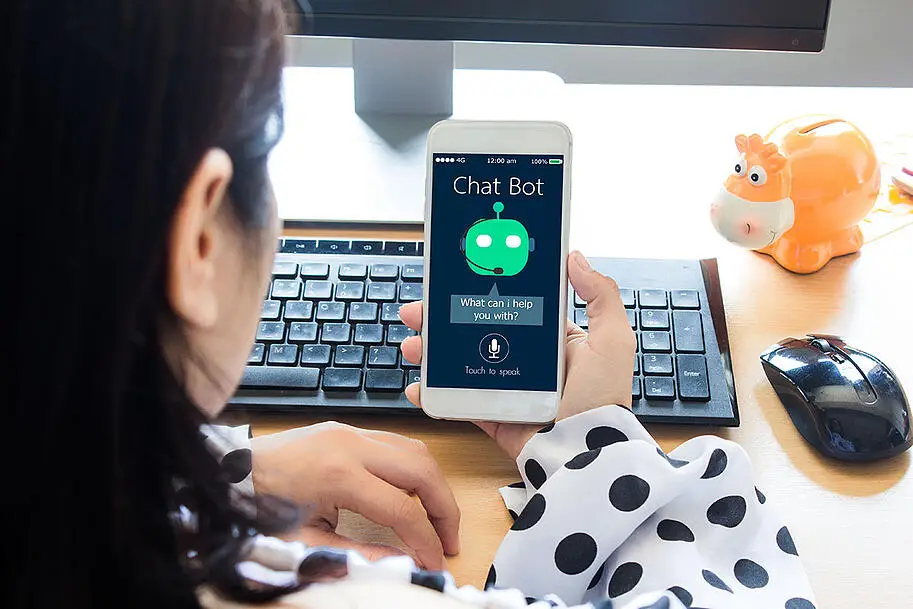
Feb 2, 2023
Blog Digital World ChatGPT and the rise of AI chatbots: Should we be worried?
This past week, social media has been ablaze with the explosive launch of ChatGPT. The AI-powered chatbot can craft poetry, write essays, answer interview questions, and craft impressive copy with just a few written prompts. While it seems the conversation has only recently ignited, it’s a technology that has been smoldering for some time.
If social media had its way, then the answer would be a resounding yes. As mentioned, fear-mongering discourse surrounding ChatGPT has been heavy, with the tech being described as ‘the wolf at the door’ for numerous jobs. While it’s true that technologies like ChatGPT are set to revolutionize countless industries, altering the way we approach both physical and intellectual labor, it’s too early to say the exact consequences of the rise of this technology.
And, as with much of the discourse found online, there’s been a clear lack of nuance. ChatGPT is just one small leaf on the AI tree, and as it stands, its capabilities are not yet finetuned.
Speaking to The Post, Chinmay Hedge, professor at NYU, said: “You can ask it to provide an essay, to produce a story with citations, but more often than not, the citations are just made up,” Hegde said. “That’s a known failure of ChatGPT and honestly we do not know how to fix that.”
OpenAI, the creators of ChatGPT, are some way off mimicking the quality of a human. But if they do achieve that, does it spell out an end to employment as we know it?
Machines replacing humans is nothing new. This well-trodden path has been in place since the industrial revolution, when machines that could mass-produce goods were introduced. In the technological era, this has only continued. More industrial tasks have become automated, but also many highly visible, customer-facing roles have been replaced by machines. The self-service kiosk at the grocery store, the pre-recorded phone operator, and even the blood-pressure reader that allows for faceless healthcare check-ups. Blue-collar jobs have already been impacted, but the advancement of AI is beckoning in a new era, one where, for the first time ever, highly skilled, white-collar jobs are threatened.
Coding, a job that only really took off in the last few decades, could witness an early demise with the rise of artificial intelligence. Similarly, AI’s propensity for acquiring knowledge could rock the education sector. With immediate access to unlimited resources, AI could effectively teach entire classes of pupils. Students are already using ChatGPT to write college-level essays for them, forcing professors to re-evaluate their approach to plagiarism and essay writing.
While jobs unavoidably will be lost to artificial intelligence, there’s also much to gain. In 2020, the World Economic Forum predicted that AI could replace 85 million jobs by 2025. Dually, the same report estimated that 97 million new jobs would also be born from AI. This, then, doesn’t indicate a mass exodus of our livelihoods, but instead calls for a recalibration of the workforce. It also means we must shift the way we view AI.
To fully maximize its benefits, we should view artificial intelligence as a tool to harness, rather than as an opposing force. In the immediate future, ChatGPT can be used to supplement and streamline output created by humans. Small businesses with limited budgets now have access to a free and efficient resource, which could act as a fantastic bolster for local economies.
Equally, while AI will cost jobs, it also represents a radical vehicle for change. If robots become more adept at performing tasks, a vast restructuring of society will be required. What will humans do with their newfound free time? Ideally, more meaningful, impactful work. Work that utilizes the attributes that aren’t quantifiable, such as idea generation, creativity, and charity. But this is still mainly blue-sky thinking.
Irrespective of ifs and buts, artificial intelligence will change the world. In fifty years’ time, society could look very different. We should be preparing for and embracing these changes as much as possible.
As reported by ZDNet, Meta’s Chief AI scientist, Yann LeCun said of ChatGPT: "It's nothing revolutionary, although that's the way it's perceived in the public. It's just that, you know, it's well put together, it's nicely done."
So no, we shouldn’t place our energies into worrying about ChatGPT. It’s how we build our society around the inevitable advent of intelligent machines that should be our focus.
To learn more about the impacts of artificial intelligence on various industries, explore BCC Research’s output below:
A complimentary overview is available for each report. We also offer memberships to our research library, which allows access to the entire suite of reports within the Information Technology category. This is an ideal solution for those looking to cover the full scope of technological advancements in this space. To enquire, please get in touch via the button below.

Olivia Lowden is a Junior Copywriter at BCC Research, writing content on everything from sustainability to fintech. Before beginning at BCC Research, she received a First-Class Master’s Degree in Creative Writing from the University of East Anglia.

From smartphones to satellites, antennas play a vital role in enabling the seaml...

Introduction Artificial Intelligence (AI) and the Internet of Things (IoT) are r...

We are your trusted research partner, providing actionable insights and custom consulting across life sciences, advanced materials, and technology. Allow BCC Research to nurture your smartest business decisions today, tomorrow, and beyond.
Contact UsBCC Research provides objective, unbiased measurement and assessment of market opportunities with detailed market research reports. Our experienced industry analysts assess growth opportunities, market sizing, technologies, applications, supply chains and companies with the singular goal of helping you make informed business decisions, free of noise and hype.